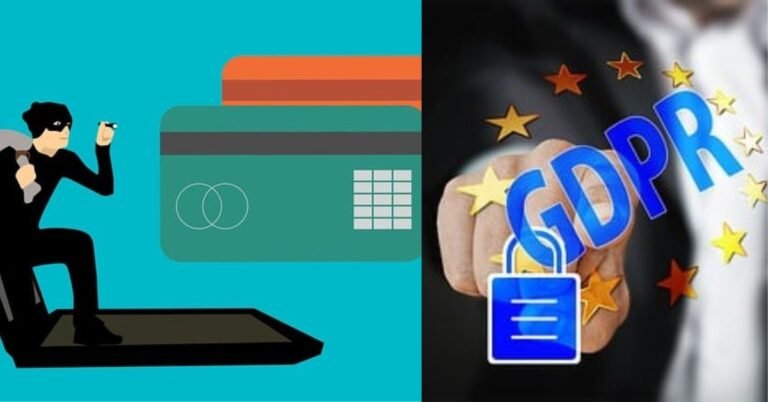Data has become the backbone of modern business, healthcare, finance, and everyday digital life. Yet with growing cyber threats and complex laws, USA data privacy is no longer just a compliance requirement — it’s a matter of trust, reputation, and survival. Whether you’re a business owner, IT professional, legal advisor, consumer, or policymaker, understanding the evolving privacy landscape is essential.
Why USA Data Privacy Matters for Everyone
-
Business owners & entrepreneurs risk penalties and reputational loss if they mishandle personal data.
-
IT & cybersecurity professionals must safeguard sensitive information against breaches.
-
Legal advisors & compliance officers navigate a maze of U.S. data protection laws across states.
-
Consumers demand transparency on how their data is collected and shared.
-
Healthcare, finance, and e-commerce companies face stricter rules like HIPAA and data privacy compliance.
-
Policymakers and advocacy groups push for stronger federal protections.
The challenge? Unlike Europe’s GDPR, the U.S. lacks a single, unified privacy law, leaving businesses to balance state regulations, industry rules, and consumer expectations.
Understanding Data Privacy Laws in the USA

The legal framework of USA data privacy is fragmented but critical to grasp:
-
CCPA (California Consumer Privacy Act): The most comprehensive state-level law, giving Californians rights to access, delete, and restrict personal data use.
-
GDPR vs USA privacy laws: Unlike GDPR’s uniform EU standards, the U.S. operates under a patchwork of state and federal rules.
-
HIPAA (Health Insurance Portability and Accountability Act): Protects medical records and personal health information.
-
Federal Trade Commission (FTC): Oversees unfair or deceptive data practices.
-
Proposed Federal Data Privacy Act: A debated move toward a nationwide framework.
Businesses operating across multiple states must monitor both federal data privacy act proposals and regional rules.
How the USA Protects Consumer Data
The U.S. uses a sectoral approach, meaning different industries have their own privacy standards:
-
Healthcare: HIPAA ensures patient confidentiality.
-
Finance: GLBA (Gramm-Leach-Bliley Act) protects financial data.
-
Education: FERPA governs student information.
-
E-commerce & digital platforms: Must comply with U.S. consumer data laws and state-specific acts like CCPA.
Consumers increasingly demand transparency, and businesses that proactively embrace digital privacy rights in the USA gain a competitive edge.
Common Business Challenges With USA Data Privacy
-
Navigating state-by-state differences in laws.
-
Ensuring CCPA compliance USA for California residents, even if the company is based elsewhere.
-
Preparing for stricter data breach regulations USA, including disclosure timelines.
-
Balancing compliance costs with operational efficiency.
-
Managing global compliance when dealing with GDPR vs USA privacy laws.
Best Practices for USA Data Privacy Compliance
Every organization — from startups to multinationals — should follow these steps:
-
Data Mapping: Identify what personal data is collected, stored, and shared.
-
Consent & Transparency: Clearly inform users about data usage.
-
Access & Control: Allow customers to request, correct, or delete their information.
-
Strong Security: Use encryption, multi-factor authentication, and regular audits.
-
Employee Training: Educate staff on compliance requirements.
-
Incident Response Plan: Prepare for data breach regulations USA to avoid legal penalties.
Practical Questions Answered
What are the data privacy laws in the USA?
They include federal acts like HIPAA, GLBA, and FERPA, plus state laws such as CCPA. Together, these form the foundation of personal data protection USA.
CCPA vs GDPR differences for businesses in the USA?
GDPR applies uniformly across the EU, while CCPA applies to California residents. GDPR is stricter on consent, while CCPA focuses more on consumer rights to opt out of data selling.
Is there a federal data privacy law in the USA?
Currently, no. A proposed federal data privacy act may unify regulations, but for now, businesses must comply with sectoral and state-level rules.
How to protect personal information online in the USA?
Consumers can:
-
Use strong, unique passwords.
-
Enable two-factor authentication.
-
Limit information shared on social platforms.
-
Use VPNs for safer browsing.
Conclusion
The future of USA data privacy will likely bring stronger federal oversight and stricter consumer protections. Businesses that adopt transparent practices, align with CCPA compliance USA, and prepare for possible federal regulations will not only avoid penalties but also build lasting trust. For professionals, consumers, and policymakers, understanding this evolving landscape is essential for safer digital interactions.
FAQ,s
What companies need to know about USA data privacy laws?
Companies must comply with industry regulations, monitor state-specific rules like CCPA, and prepare for stricter enforcement of consumer rights.
How does HIPAA affect USA data privacy for healthcare?
HIPAA protects patient health records by setting standards for handling, storing, and sharing sensitive medical data.
USA federal and state data privacy regulations explained?
Federal laws govern sectors (healthcare, finance, education), while states like California, Virginia, and Colorado have their own broader consumer protection laws.
Steps businesses can take for USA data privacy compliance?
Conduct audits, implement strong cybersecurity measures, appoint compliance officers, and maintain transparent privacy policies.
How does the USA protect consumer data in e-commerce?
Through a combination of U.S. consumer data laws, FTC oversight, and state regulations requiring disclosure, security, and consent.
Author Bio
Humma Iltaf is a professional content writer with expertise in SEO-driven articles on business, law, and technology. With a background in English literature and years of writing experience, Humma specializes in creating clear, human-centered content that blends authority with accessibility.

